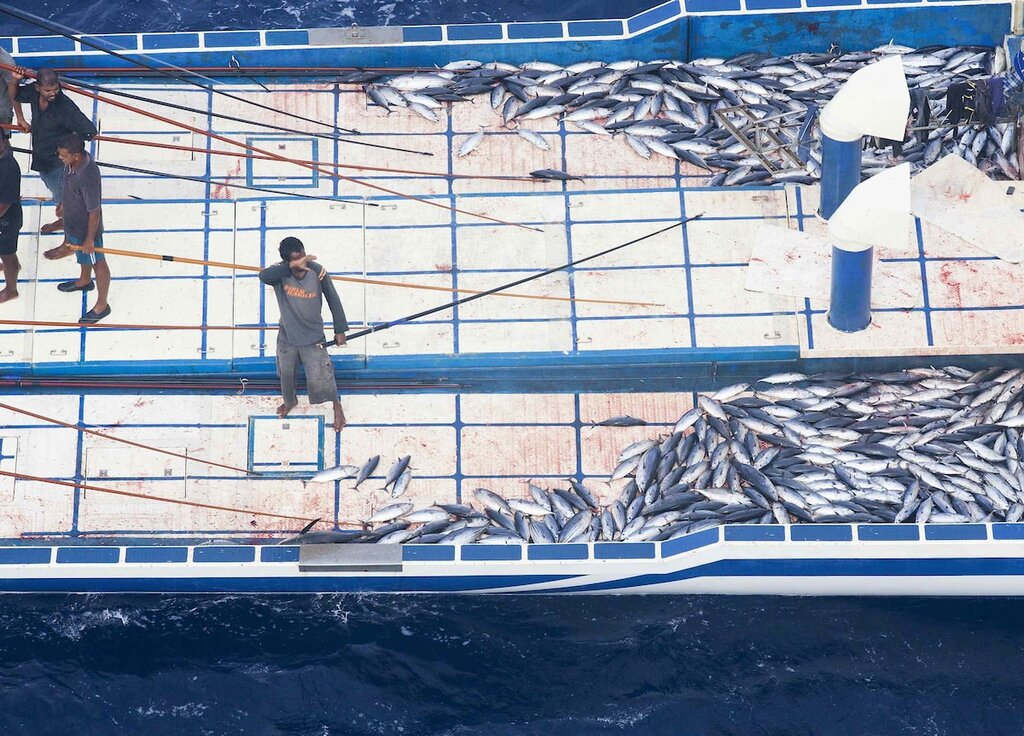Asia’s marine fisheries are at risk of collapse as key commercial fish species are rapidly declining due to climate change and overfishing in the South China Sea.
—
Overfishing in East and South China Sea and worsening impacts of climate change are driving Asia’s fisheries to the brink of collapse in the coming decades, according to new research released by the University of British Columbia (UBC) fisheries scientists and ADM Capital Foundation.
The East and South China Seas are the two of most important fishing areas in the West Pacific in terms of productivity and economic value, with a combined trade valued at approximately USD$100 billion. However, these marine ecosystems have faced decades of damage as a result of overfishing, rising ocean temperatures and plastic pollution, and it’s projected to get a lot worse.
Using advanced ecosystem modelling techniques to project the impacts of climate change and overfishing on fish populations, the report found that the South China Sea will very likely experience significant declines in key commercial fish and important species in the region, including croakers and groupers, which are already under serious threat from overexploitation. The analysis, which focusses on seafood species that are valuable to Hong Kong, showed that this current rate of fishing will lead the population sizes of these commercially important fishes to rapidly deplete.
“Under certain climate change scenarios, seafood species that are mainstays of the Hong Kong seafood market, such as groupers, threadfin breams, and snappers, could be reduced to a fraction of their present population size by the end of the century – if not driven completely to extinction,” said Dr. Rashid Sumaila, Professor at the Institute for the Oceans and Fisheries and the School of Public Policy and Global Affairs at UBC. “This is especially the case in the tropical waters of the South China Sea, where many fish species are already facing the limits of their heat tolerance.”
Other popular fish such as chub mackerel or large yellow croakers have been classified as overexploited and severely declining.
You might also like: 15 Facts About Overfishing
A key driver in the overexploitation of Asia’s fisheries is the growing demand for fish-based feed in the aquaculture industry, otherwise known as feed-grade fishing, which sees juvenile fish of commercially important species being harvested, preventing fish stocks adequate time to replenish.
Parts of the East and South China Seas also experienced ocean temperatures warming 10 times the global average rate, which has a detrimental effect on marine life, putting the regional fishing economies and job securities at risk.
According to the most recent Intergovernmental Panel on Climate Change (IPCC) report, the world is on track to reach 1.5C of global warming within the next two decades. In a worst case scenario where temperatures exceed a 2C warming limit, the fisheries report estimates revenue losses could reach upwards of USD$10bn annually for South China Sea fisheries.
But if the world manages to limit temperature increase to 1C by 2050, revenue losses will drop to USD$3-7bn. Either way, the fishing industry will suffer financial setbacks.
Experts are calling for an urgent action to reduce fishing effort in the next 10 years in order to prevent irreparable damage to Asia’s key oceans. This includes addressing feed-grade fishing and adopting alternative protein sources for aquaculture. If we allow juveniles to mature in the wild, research modelling predicts that regional fisheries revenue could reach 10 times higher compared to current feed-grade fishing practices. Integrating climate change and fisheries management policies will also be crucial in preventing irreparable damage to Asia’s key oceans.
“With a strong commitment to regional fisheries management and climate change mitigation, our oceans can continue to support Asia’s human, social, and economic well-being to infinity,” said Sumaila. “The choice is ours to sink or swim.”
Featured image by: Paul Hilton for Earth Tree Images


















